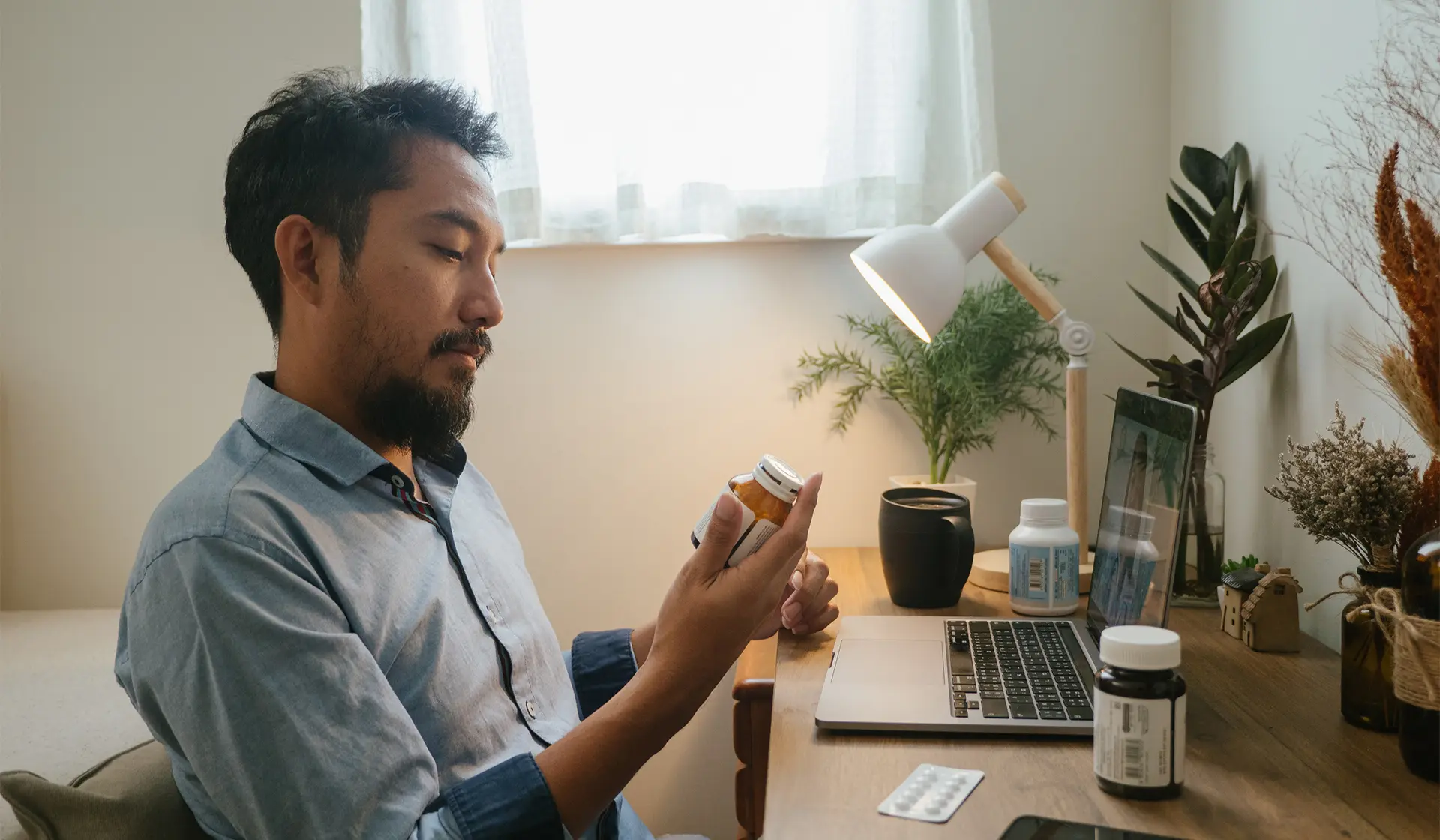Oral Minoxidil For Hair Loss: Everything You Need To Know
There’s a new kid on the hair loss treatment block and it’s getting rave reviews from users. If you suffer from male pattern baldness, you’ll probably be familiar with Minoxidil – the active ingredient in Rogaine (branded as Regaine in the UK) foam, a treatment that’s been helping to restore hair since 1988.
Rogaine is a topical treatment, meaning it works by applying the foam directly to the scalp. However, Minoxidil is now available in tablet form, and its results are reportedly better than those gained from using the topical version. So, could this be the end of messy foam applications?
Here, we take a look at the pros and cons of oral Minoxidil, the recorded side effects, where you can buy it, and whether it’s worth making the switch from topical.
How does oral Minoxidil work?
It’s a vasodilator
Oral Minoxidil actually started out as a hypertension (high blood pressure) treatment. It’s a vasodilator, a medication that relaxes blood vessels in order for blood to pass through them easier. Now, while it’s an effective medication to lower blood pressure, it was also found to increase hair growth in patients taking the medication – an unexpected and happy outcome for millions of consumers suffering from hereditary hair loss.
With the blood vessels dilated, more growth factors are able to penetrate the hair follicle, resulting in hair growth.
It prolongs the anagen hair phase
Of the four phases of hair growth – growing, transition, resting and shedding – ‘anagen’ is the growing phase. Minoxidil is proven to lengthen the anagen phase, which means your hair will appear thicker as there will be increased hairs growing at any period of time.
It inhibits androgenic effects
Unless there is an underlying issue you’ve yet to diagnose, hair loss results from the miniaturisation of the hair follicles caused by androgens, a male sex hormone. Oral Minoxidil inhibits these androgenic effects, slowing hair loss.
Increases hair diameter and density
Oral Minoxidil is effective in improving hair diameter and, as a result, hair density. Studies have shown that on a dose of 1mg per day, the total hair density increased by 47 hairs for every square centimetre and the ‘terminal hair density’ was nine new hairs for every square centimetre.
Oral Minoxidil vs Topical Minoxidil
One of the great benefits of oral over topical Minoxidil is that it’s easier to use. Having to apply foam twice a day gets old pretty quickly and leaves the hair feeling not so pleasant. The foam can cause a rash or other scalp irritation too, and some people report that their hair becomes dry and tangled, making it prone to breakage.
With any kind of treatment, patients who follow the recommendations and stick to a regular routine generally achieve better outcomes. If you get sick of applying the foam and only get around to doing it on days when you’re not going out so people won’t see your hair, it’s hardly going to be effective, is it?
Oral Minoxidil is also sometimes prescribed for people who haven’t noticed meaningful hair regrowth from topical Minoxidil.
Who shouldn’t take oral Minoxidil?
Given that Minoxidil is effective at lowering blood pressure, it’s not suitable for people who are hypotensive (who experience low blood pressure). Oral Minoxidil is also not recommended for people who are aged under 18, or for hair loss that is unexplained (that is, there is no family history of hair loss). It should not be taken during pregnancy or pre-conception and is not effective in women who experience hair loss following giving birth.
Patients with other underlying health issues such as problems with their kidneys, liver or heart should not take oral Minoxidil. While topical Minoxidil doesn’t typically alter a person’s blood pressure or heart rate, the tablets can.
In any case, oral Minoxidil can only be obtained on prescription so a medical practitioner can determine if it’s a suitable drug for the patient. In the UK, Minoxidil is not a prescribed NHS medication for hair loss. Speaking to a private GP to get a prescription is the most common practice.
Will oral Minoxidil work for everyone with hair loss?
Not necessarily. It depends on the severity of hair loss and of course, the reason for the hair loss in the first place. It’s primarily intended for men and women with androgenetic alopecia (commonly known as ‘male pattern baldness‘ but which effects women too).
However, oral Minoxidil can be effective in those suffering from alopecia areata, traction alopecia, telogen effluvium (temporary hair shedding around chronic stress) and loose anagen hair syndrome (LAS), too.
Oral Minoxidil dosage
Evidence shows that women require lower doses of oral Minoxidil, with 0.25mg and 2.5mg considered an effective daily therapeutic dose.
For men, effective therapy begins at 2.5mg and some patients may require 5mg per day.
Side effects of oral Minoxidil
Side effects are a drawback of every drug. Because every individual is different, the side effects experienced by one person may be different to those experienced by others.
When first starting to take oral Minoxidil, dizziness and light-headedness can occur and this usually goes away once the body is accustomed to the drug. Minoxidil can also cause hypertrichosis, a condition that involves excessive hair appearing on the face and/or body. Fortunately, the hairs are very fine, so many people (even women) find the benefits outweigh this drawback. At the low doses of oral Minoxidil that women take, it’s usually not too common.
Other side effects can include weight gain, headache, blood pressure changes, lower limb swelling, chest pain and an increased heartbeat.
In the end, with any new medication you should be fully aware of the side effects going in and be comfortable taking the risk, no matter how small. You should also be honest with yourself and monitor your first few weeks/months to see how your own body reacts, then adjust accordingly.
How will you know if oral Minoxidil is working?
It’s important to give oral Minoxidil a good four to six months to see initial results, and longer to see optimal results. You have to keep in mind how long it takes for hair to grow and realise that it grows at different stages.
It’s also important to be consistent with your medication. You can’t just take oral Minoxidil and then decide to stop it because you’re going on holidays, or not take it on weekends because you’re out of your normal routine. It doesn’t work that way. Oral minoxidil works when you take it, and when you stop, you quickly revert back to where you were prior to taking the drug.
You should reconcile the fact that you may need to take Minoxidil for the rest of your life… or at least until you no longer desire a lovely head of hair.
Where can I get a prescription for oral minoxidil?
As always, with any drug, you must seek professional medical advice. Your family GP is a potential place to start. But generally, you will find your GP has very little time or sympathy for helping you remedy your hair loss as they do not deem it important (in the grand scheme of things).
Therefore, it’s often best speak to a private GP for hair loss. This is particularly true for oral Minoxidil, which isn’t prescribed on the NHS.







